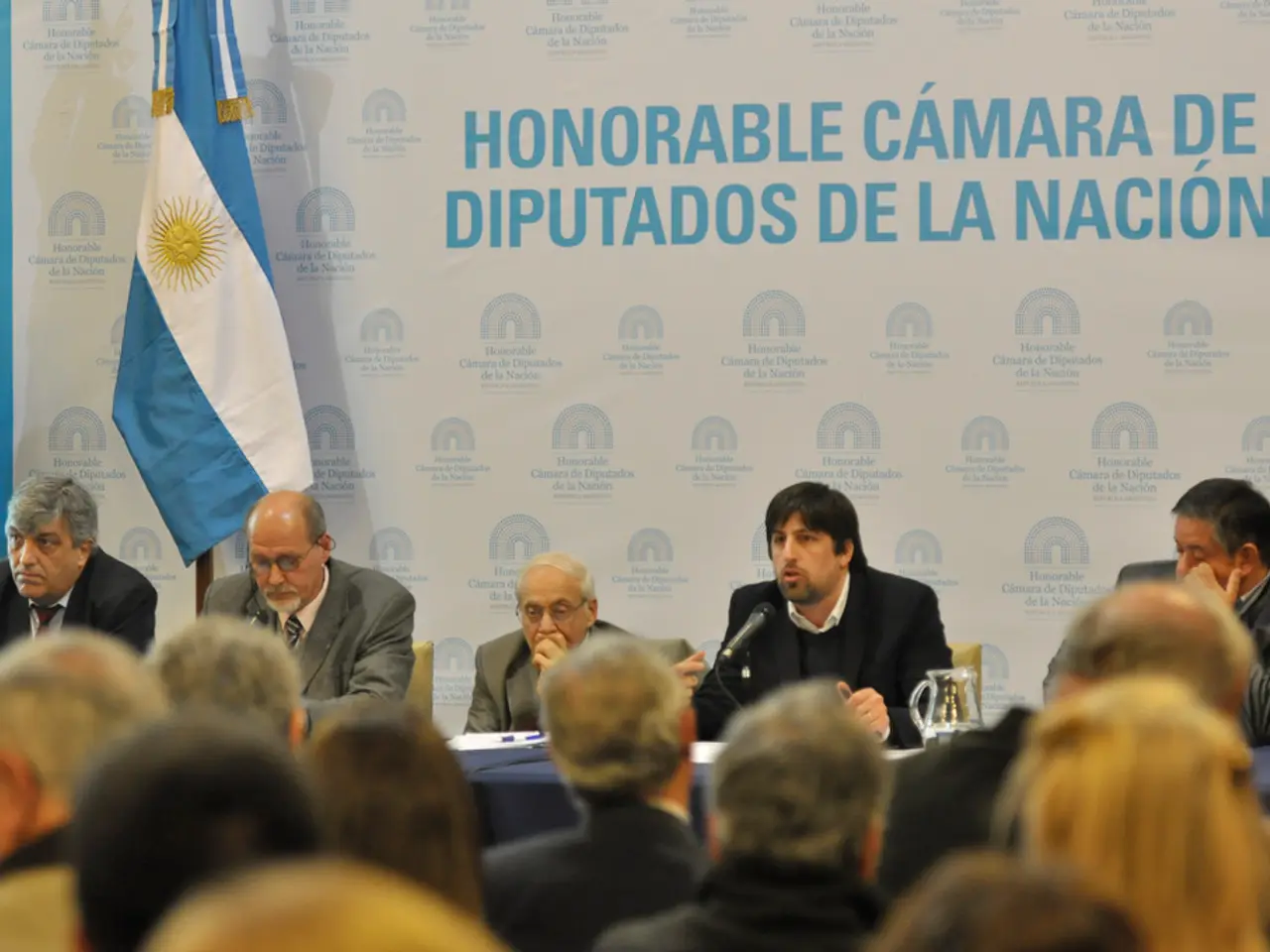Administration of Trump requests pause from an appeals court on an order mandating officials to halt immigration arrests except when there's probable cause.
In a recent development, the Trump administration has announced plans to appeal a federal judge's order in California, which temporarily halted immigration enforcement operations in several Southern California counties. The order, issued by U.S. District Judge Maame Ewusi-Mensah Frimpong, prohibits agents from making arrests without reasonable suspicion and from detaining people based solely on superficial characteristics such as race, ethnicity, place of work, or language spoken.
The judge's ruling, issued on July 9th, has sparked a legal challenge, with the Department of Justice (DOJ) arguing that it is a "gross overstep of judicial authority" and an attempt to dictate immigration policy, a responsibility that rests with Congress and the President. The appeal is expected to be filed with the Ninth Circuit Court of Appeals.
The legal challenge is part of a broader debate about immigration enforcement policies in the United States. The case originated from a civil rights lawsuit by the American Civil Liberties Union (ACLU), which alleged that federal agents were making arrests without probable cause, often targeting individuals based on superficial characteristics. The community has been affected by increased immigration enforcement, leading to widespread concern and protests.
Justice Department attorneys have requested an "administrative stay" from the 9th US Circuit Court of Appeals, aiming to temporarily halt Frimpong's order. The administration accuses Judge Frimpong of overstepping in her ruling, claiming it amounts to a "judicial takeover" of executive branch policy.
However, the ACLU of Southern California, involved in the legal challenge, is urging the 9th Circuit to deny the request for a short-term pause. The court order, if upheld, would require immigration officials to stop making arrests without probable cause in the southern part of California, specifically in the seven-county jurisdiction of the US Central District of California, which includes Los Angeles and surrounding areas.
The court order also requires the Department of Homeland Security to develop guidance for officers to determine "reasonable suspicion" without considering race, ethnicity, language, location, or type of work. The ruling further alleges that the Department of Homeland Security has made unconstitutional arrests and hindered detainees' access to attorneys.
The outcome of the appeal will depend on the Ninth Circuit Court's decision, which is yet to be determined. The appeal is currently in its initial stages.
The Department of Justice is arguing that the judge's order, which prohibits immigration enforcement agents from making arrests without reasonable suspicion and from detaining people based on superficial characteristics, is an attempt to dictate immigration policy, a responsibility that rests with Congress and the President. The judge's ruling, if upheld, would not only impact immigration policy-and-legislation but also general news, as it could set a precedent for future court decisions on immigration enforcement operations.





